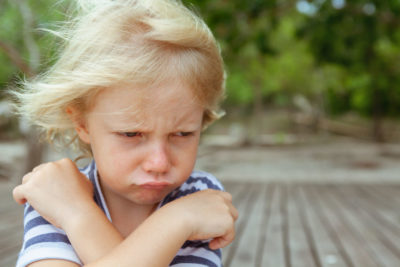Parenting is a tough job. Yet most parents will tell you it’s the most important and rewarding thing they’ve ever done. The love of a parent compares to no other kind of love or feeling on the planet. But when your sweet babies turn into toddlers, some parents start to question if they’re cut out for the job. Toddlers have a reputation for being a bit more challenging for good reason. But it doesn’t necessarily mean that we have done anything wrong, or even that the child is doing anything wrong. In fact, a lot of what toddlers are known for is pretty developmentally appropriate which is why they’re known for it. Even if it does drive you crazy and make you question your parenting skills.
The reality is, when your baby turns into a toddler they become much better at communicating, understanding, and knowing exactly what they want. But they are still learning the skills to communicate properly and respond to situations in which they aren’t able to say or do what they want in a way that we, or society, finds acceptable. This can lead to a very frustrated child and oftentimes it manifests into physical reactions like hitting.
A toddler who hits is the ultimate stereotype, it’s almost expected of them. So what are we supposed to do to remedy the situation? There are a lot of different styles of parenting and each style handles hitting in a different way. Below we’ll discuss some positive parenting methods for dealing with a toddler who hits.
What is positive parenting?
First, a brief description of what positive parenting is. Positive parenting is a parenting style that is focused on developing a strong relationship with your children based on respect and communication. Positive parenting is less about teaching our kids to obey and blindly follow “because I said so”, and more about teaching them self control and how to handle situations on their own. It focuses on helping our children develop skills for the future, and less on punishing them for the past.
Tips for helping toddlers who hit
Understand that it’s normal
While there are some extreme circumstances, a toddler who hits is a relatively normal occurrence. When it comes down to it, toddlers get frustrated or angry just like we do. The difference is that they haven’t developed the skills to cope with that frustration or anger yet. In fact, there are adults that have this problem too. But just understanding that toddlers hitting is developmentally appropriate can take a huge weight off your shoulders so that you can get to work on redirecting this behavior into something more appropriate instead of reacting negatively.
Take a moment
Unless your toddler is doing a lot of harm, it can help to take a deep breath and observe the moment before you react to their hitting. This can calm any heightened nerves and help you to take a look at the full situation, not just the act of hitting. Our initial reaction can often be to get angry, yell, or somehow punish and this doesn’t do anything to help. In fact, it will heighten their emotions, as well as yours.
Stop them and set a boundary
Sometimes a toddler will hit just once and move on, but sometimes they’re just so overwhelmed with emotions that it continues or becomes repetitive. At this point, it’s ok to physically stop them, or remove them from the situation. This doesn’t mean punish, it simply means to stop them from the act of hitting or hurting others.
Figure out the reason
Take a look at the situation before you. Can you figure out why your child is hitting? Is it because someone took a toy they were playing with? Maybe they’ve missed their nap and are just a little more reactive than usual? Usually, you can find the reason and understand what provoked them. Dig in a little bit and see what you can find out.
Have a calm conversation
Since positive parenting encourages mutual respect, communication, and relationship it’s time to have a conversation with your toddler. Some may think that you can’t talk or reason with a toddler, but even before they’re ready to talk they can understand more than they get credit for. In this conversation, it’s important to remain calm, listen to them, and set some boundaries. You can also present alternatives to hitting when they’re feeling that particular emotion such as walking away, asking for help, or taking deep breaths.
Working with your toddler to help them achieve the goal of being able to properly handle their emotions is a long, hard process. But the time and effort are well spent because you’re setting them up to be respectful adults who are able to handle their feelings in an appropriate way.

